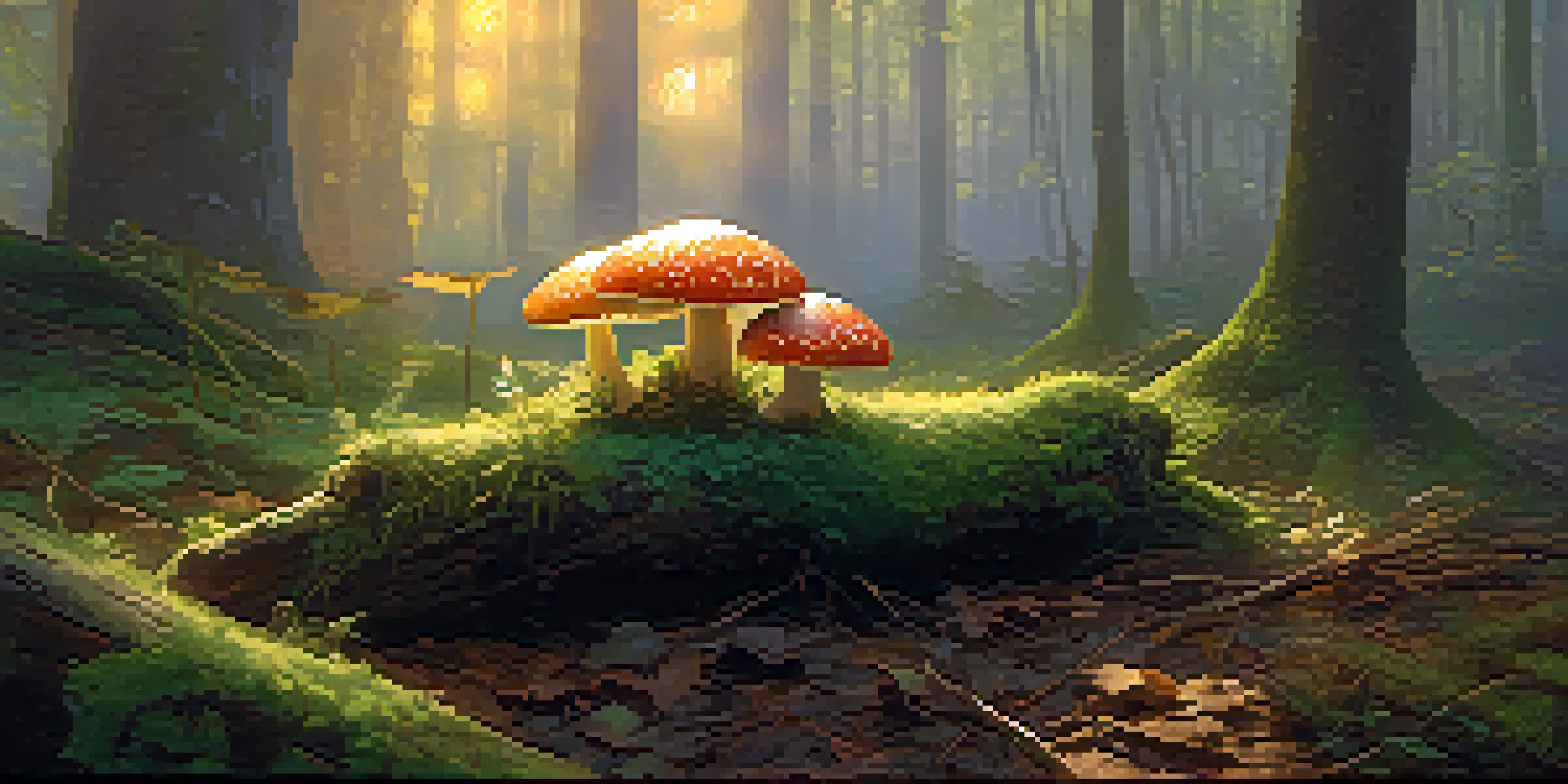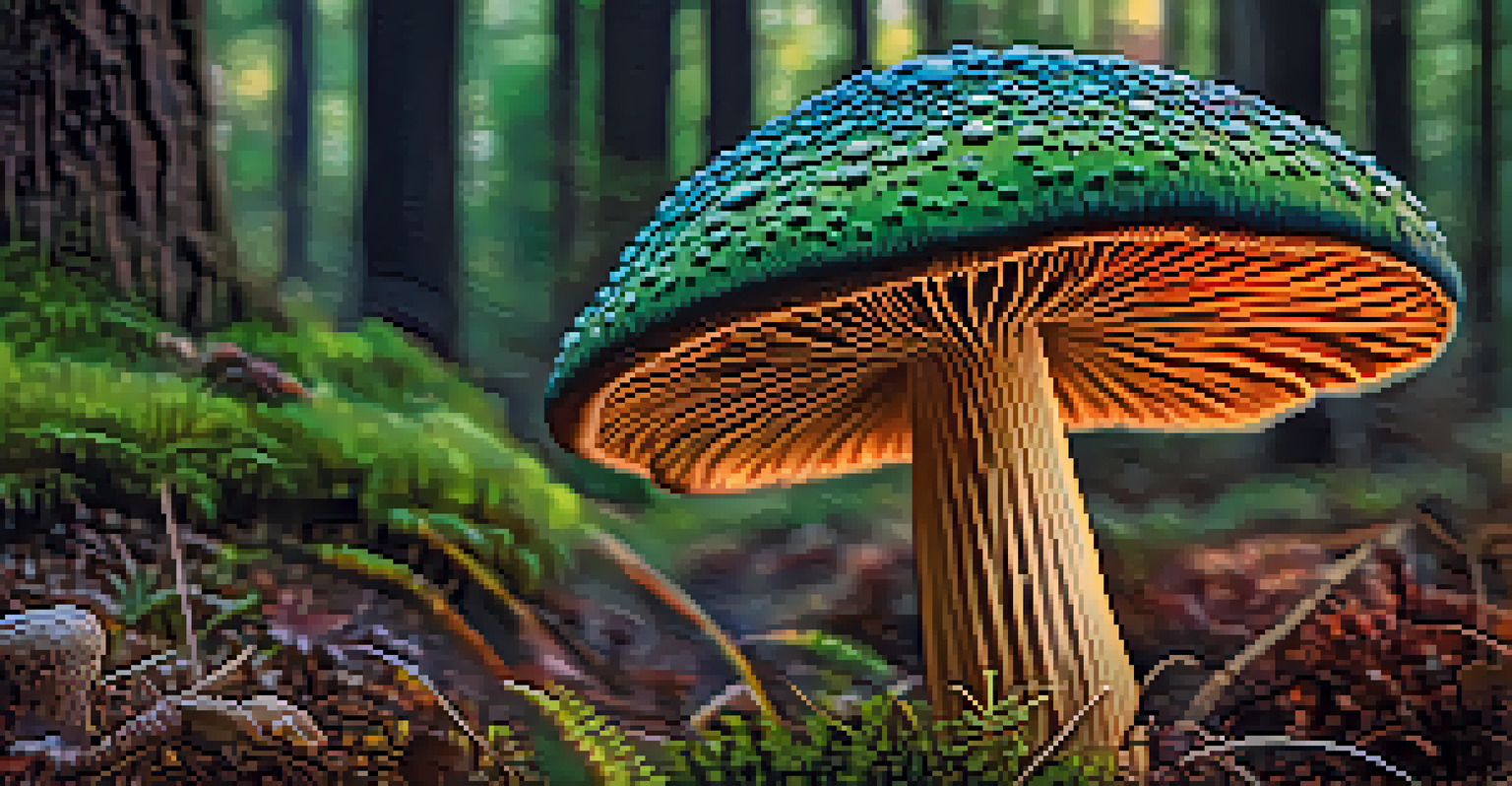From Isolation to Connection: Entheogens and Empathy Building

Understanding Entheogens: A Brief Overview
Entheogens are substances that, when ingested, can induce altered states of consciousness. Often derived from plants or fungi, these compounds have been used for centuries in various cultural rituals. They can evoke profound experiences that may lead to greater self-awareness and connection with others.
The distinction between entheogens and recreational drugs is critical, as the former promotes introspection and connection, while the latter often focuses solely on pleasure.
The term 'entheogen' comes from Greek roots meaning 'generating the divine within.' This highlights the spiritual aspect of these substances, which many users report feeling during their experiences. By tapping into deeper emotions, entheogens can create pathways to empathy and understanding.
While often lumped together with recreational drugs, entheogens have unique properties that promote introspection and social bonding. As society increasingly explores these substances, the potential for empathy enhancement becomes an intriguing topic.
The Science Behind Empathy and Connection
Empathy is the ability to understand and share the feelings of others. Scientific studies suggest that certain entheogens, such as psilocybin and MDMA, can significantly enhance this capacity. By altering brain chemistry, these substances can increase feelings of compassion and connection.

When using entheogens, individuals often report a sense of unity with others, transcending personal boundaries. This phenomenon can lead to improved communication and a genuine desire to understand different perspectives. For example, many participants in studies have described feeling closer to their friends and even strangers.
Entheogens Enhance Empathy
Entheogens can significantly boost feelings of empathy and connection by altering brain chemistry and promoting introspection.
This scientific backing highlights the potential application of entheogens in therapeutic settings. As mental health issues continue to rise, understanding how these substances can promote empathy could revolutionize treatment approaches.
Entheogens in Traditional Cultures: A Historical Perspective
Throughout history, various cultures have utilized entheogens as tools for connection and healing. Indigenous peoples, for instance, have employed these substances in rituals to foster community bonds and spiritual awakening. These practices illustrate the longstanding belief in the power of entheogens to enhance empathy.
Empathy is about finding echoes of another person in yourself.
In many shamanic traditions, the use of entheogens is not merely for personal exploration but serves a communal purpose. By connecting with a higher consciousness, individuals can bring insights back to their communities, enriching collective understanding. This practice emphasizes the role of entheogens in social cohesion.
The rich history of entheogens in these cultures offers valuable lessons for modern society. By looking back, we can glean insights into how these substances facilitate connection and empathy, encouraging a more compassionate world.
Modern Therapeutic Applications of Entheogens
In recent years, there has been a resurgence of interest in the therapeutic potential of entheogens. Clinical trials are exploring their use in treating mental health conditions like PTSD, anxiety, and depression. The results indicate that these substances can foster emotional breakthroughs and deeper connections with oneself and others.
Therapists and researchers are beginning to recognize the importance of empathy in the healing process. By using entheogens in a controlled environment, patients can experience profound moments of understanding and compassion. This transformative experience can significantly improve their relationships with others.
Cultural Roots of Entheogen Use
Various cultures have historically employed entheogens in rituals to foster community bonds and spiritual growth.
As these therapies gain traction, they could reshape how we approach mental health treatment. By integrating empathy-building techniques with entheogen use, we may create a more holistic model of healing that emphasizes connection.
Personal Experiences: Stories of Connection
Many individuals who have used entheogens report transformative experiences that enhance their sense of empathy. For instance, a common theme among users is the feeling of interconnectedness with all living beings. This realization can lead to a renewed appreciation for life and a commitment to fostering positive relationships.
One user shared how a psilocybin journey allowed him to see the world through his partner's eyes, leading to profound discussions and a stronger bond. Such personal anecdotes highlight the potential of entheogens to facilitate deeper communication and understanding in relationships.
These stories underscore the importance of individual narratives in understanding the broader impact of entheogens. As more people share their experiences, we can better grasp how these substances can shift perspectives and create meaningful connections.
Challenges and Concerns Surrounding Entheogen Use
Despite their potential benefits, the use of entheogens is not without challenges. Misuse or unsupervised consumption can lead to negative experiences, including anxiety and disorientation. Therefore, it’s crucial to approach these substances with respect and caution.
Moreover, the legal status of entheogens poses a significant barrier to research and therapeutic use. In many regions, these substances are still classified as illegal drugs, limiting access for those who could benefit from their properties. Advocacy for responsible use and regulation is essential to unlock their potential.
Therapeutic Potential of Entheogens
Recent studies indicate that entheogens may play a crucial role in mental health treatment by facilitating emotional breakthroughs and deeper connections.
By addressing these challenges head-on, we can create a safer environment for exploring the benefits of entheogens. Education and open dialogue will play a vital role in shaping a responsible approach to their use and understanding.
The Future of Empathy and Entheogens in Society
As we continue to explore the intersection of entheogens and empathy, the future looks promising. With ongoing research and changing societal perceptions, we may see a shift towards more compassionate communities. The potential for entheogens to facilitate deeper connections can lead to a more empathetic society.
Imagine a world where therapy includes entheogens as a standard practice for building empathy. This could revolutionize how we approach mental health, making connection and understanding a priority. By fostering empathy, we could address broader societal issues, such as prejudice and division.

Ultimately, the journey from isolation to connection through entheogens is just beginning. By embracing these substances responsibly, we can cultivate a culture that values empathy and understanding, paving the way for a brighter future.